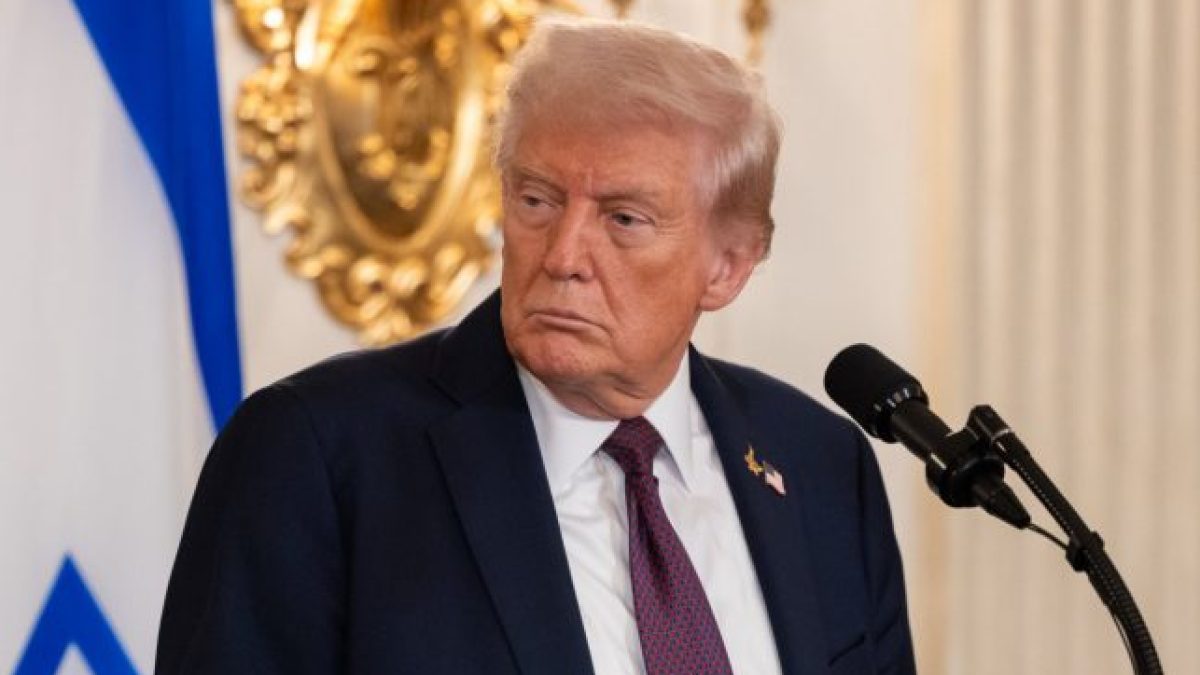
No one will ever accuse Donald Trump of false modesty.
“This is a big, big day, a beautiful day, potentially one of the great days ever in civilisation,” US the President insisted, as he laid out his peace plan for the Middle East.
The deal announced with Israel’s Prime Minister Benjamin Netanyahu may or may not represent civilisation’s greatest day but it could be a major breakthrough in finally ending the war in Gaza.
“Could” is the word to focus on at this point. With no news yet on whether Hamas will agree to the 20-point plan, it may be another occasion when much was promised but little delivered. There have been plenty of those.
Yet, the proposals made public at the White House on Monday may have a chance of working, if only for the fact that after almost two years of military operations by Israel, an estimated 65,000 Palestinians have been killed. If not now, then when is the world going to say to Israel, enough?
Many details of the proposal remain unclear. At its heart, the plan would establish a temporary governing “Board of Peace” for Gaza, headed by Trump himself and including Sir Tony Blair.
“The leaders of the Arab world and Israel and everybody involved asked me to do this,” Trump claimed.
The involvement of the former British prime minister will no doubt be controversial for those who remember his role in ordering British troops to invade Iraq in support of George W Bush.
In his post-political career, Blair’s consultancy group has done work for autocratic nations such as Saudi Arabia and the United Arab Emirates. If nothing else, he knows the region.
If it goes ahead, the plan announced on Monday would end the rule of Hamas in Gaza, which dates from 2007, and see the disarmament of the group. It does not appear that Hamas was consulted, but the group’s negotiators have told mediators they will review the plan “in good faith” and provide a response.
Crucially, the plan does not call for people to leave Gaza – an idea Trump once floated – and will involve the establishment of an international security force to take over law enforcement.
Several countries that have been mentioned as playing a role are Jordan, Egypt, Indonesia, Qatar, Saudi Arabia and Pakistan, all of which are Muslim majority nations. There was widespread support announced for the plan from those countries on Monday.
Unlike some of the proposals that had been previously mentioned, the plan would happen all at once and not be phased. If all parties agreed, peace could be reached in a matter of days and the remaining hostages held by Hamas would be released.
It’s thought there are around 20 living hostages being held by Hamas, and the bodies of around two dozen others. Hundreds of Palestinians serving jail sentences would also be freed.
There is pressure on all involved to find some sort of resolution.
The plan, announced almost two years after the Hamas attack on Israel that killed at least 1,200 people, comes as Israel and its prime minster face increasing international isolation.
In recent weeks, a number of nations, including Britain, have announced their recognition of a Palestinian state, bringing the total to 156 of the 193 member states of the United Nations.
Over the weekend, Netanyahu spoke at the UN to denounce such moves and suggested that Israel “must finish the job” against Hamas. Yet other than Trump, Netanyahu has found he has few allies, and at home he has faced repeated protests to end the war and bring home the remaining hostages.
The situation on the ground for those in Gaza is also getting worse.
Yet while plenty in Gaza would welcome an end to the fighting and a chance for humanitarian aid to enter, it is far from clear what the deal does for a future Palestinian state. Netanyahu has vowed he will never permit one.
Indeed, the proposal announced at the White House provides only a fleeting reference to the idea of a Palestinian statehood, and pushes into the corner the role of the Palestinian Authority (PA).
It is not until the 19th of the 20 points that it is even mentioned, saying: “While Gaza redevelopment advances and when the PA reform programme is faithfully carried out, the conditions may finally be in place for a credible pathway to Palestinian self-determination and statehood, which we recognise as the aspiration of the Palestinian people.”
So not, perhaps, the greatest day in civilisation, as Trump suggested.
Rather it appears the proposed deal underscores how the international community has become tired with Netanyahu but also how little actual power Palestinians have, despite all the claims of purported support.
Trump’s peace plan is just one step. Yet, despite all the holes, if it does bring an end to the horrific conflict – and that is a big if – plenty will cheer this deal for that reason alone.
